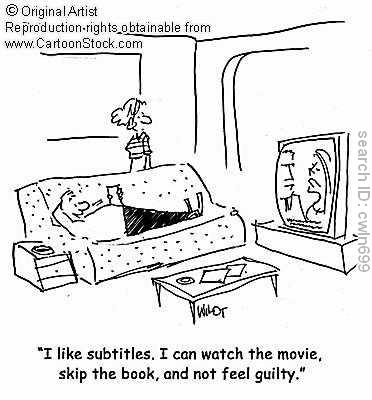Serendip is an independent site partnering with faculty at multiple colleges and universities around the world. Happy exploring!

Mary Shelley - OBEY!
Found this around, and thought it was interesting:
Source: http://letterstodeadpeople.tumblr.com/post/4500922866
Thoughts?

Why is the movie never as good as the book?
Earlier in the semester, I was delighted to hear that we would be watching the theatrical adaptation of Orchid Thief. I read the novel back in the ‘90s and remember really enjoying it. (I’m not usually one to read about flowers, but I read an excerpt and got reeled in). I should have known better, however, than to look forward to the film. I don’t think I’ve ever seen a movie that was better than the book. If they make a hit movie from a novel, it makes me want to read the book, not see the movie.
"Reading" minds
Following our conversation with Chorost, I was very intrigued by the enhanced interaction and interconnection that seemed to be the goal of such a technological innovation (giving human brains constant access to the internet). Overall, I very much enjoyed listening to the aspects of the conversation revolving around the notion of communication. Admittedly, when I first read the sections of the book I was a bit wary of such close interconnection between minds. However, after hearing the advantages of modern technological innovations—email, instant messaging, facebook etc—I became more acclimated to the idea. Many people, mostly the older generation, are still adverse to these new practices of communication.

Fun fact...
On February 11, 2003, "Donald Kaufman" was nominated for a real-life Academy Award, along with the real Charlie Kaufman, for the screenplay of Adaptation (2002). This is the first time in Oscar history that a nomination has been bestowed upon a fictional human being.







